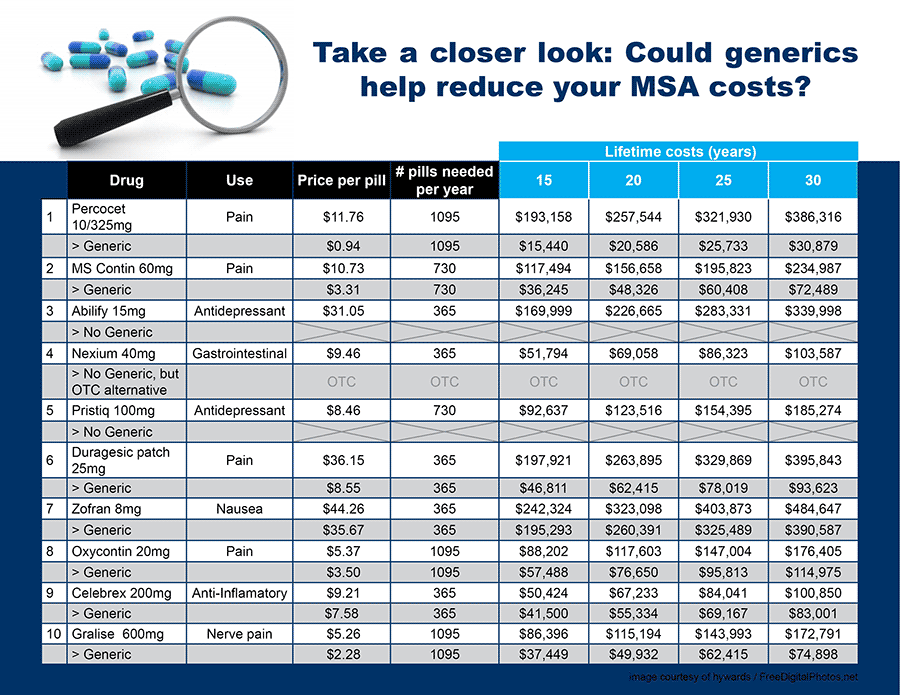What if I told you that you could save $185,000 at no cost to you? No, I am not advertising for some late night TV infomercial where the offer is too good to be true. I am talking about the world of Medicare set-asides (MSA). It is well known that prescription drugs are the leading cause of high MSAs. Why is that? The reason is simple: The Centers for Medicare & Medicaid Services (CMS) require drugs to be priced for the lifetime of the claimant (if we are seeking CMS approval of the MSA). In addition to a lifetime allocation of the drugs, CMS also uses what is called Average Wholesale Pricing, or AWP, to determine the price per pill of each drug. Very often the AWP is much higher than the workers’ compensation price, the drug store price or the discount price we receive from a pharmacy vendor.
Many clients and examiners have asked the Sedgwick Medicare compliance team about the highest-costing drugs. So we have put together a chart showing the top 10 most expensive, commonly prescribed drugs. In the chart below we have listed the drugs along with their common costs over various life expectancy timeframes. We have also listed generic alternatives where available to illustrate possible cost savings by getting the treating doctor to prescribe generic alternatives.

Let’s go back to my introductory statement about what if you could save $185,000 dollars. Looking at an example for a claimant with a life expectancy of 15 years, Percocet will add almost $200,000 to the cost of the MSA. But if the doctor prescribes the generic alternative, this amount is reduced to $15,400; a savings of approximately $185,000 to the employer or carrier on the MSA allocation. That is the kind of savings I believe everyone can agree is significant and still provides the same level of treatment for the patient.
We are providing this list as a reference only. Drug prices do change frequently, so don’t rely on this chart to price a drug. However, if a claimant is taking one or more of these drugs, it may be beneficial to have the case reviewed by a pharmacy utilization review team before making an MSA referral. By doing so, the utilization reviewer would have the opportunity to analyze the prescribed drugs and perhaps get the claimant off of these expensive drugs or move the claimant to a generic alternative. In either case, the MSA would be significantly reduced.
If you have questions or concerns about any Medicare compliance topic or issue, please contact our Medicare concierge desk at medicarehelp@sedgwick.com.
Michael Merlino, VP, Medicare Compliance